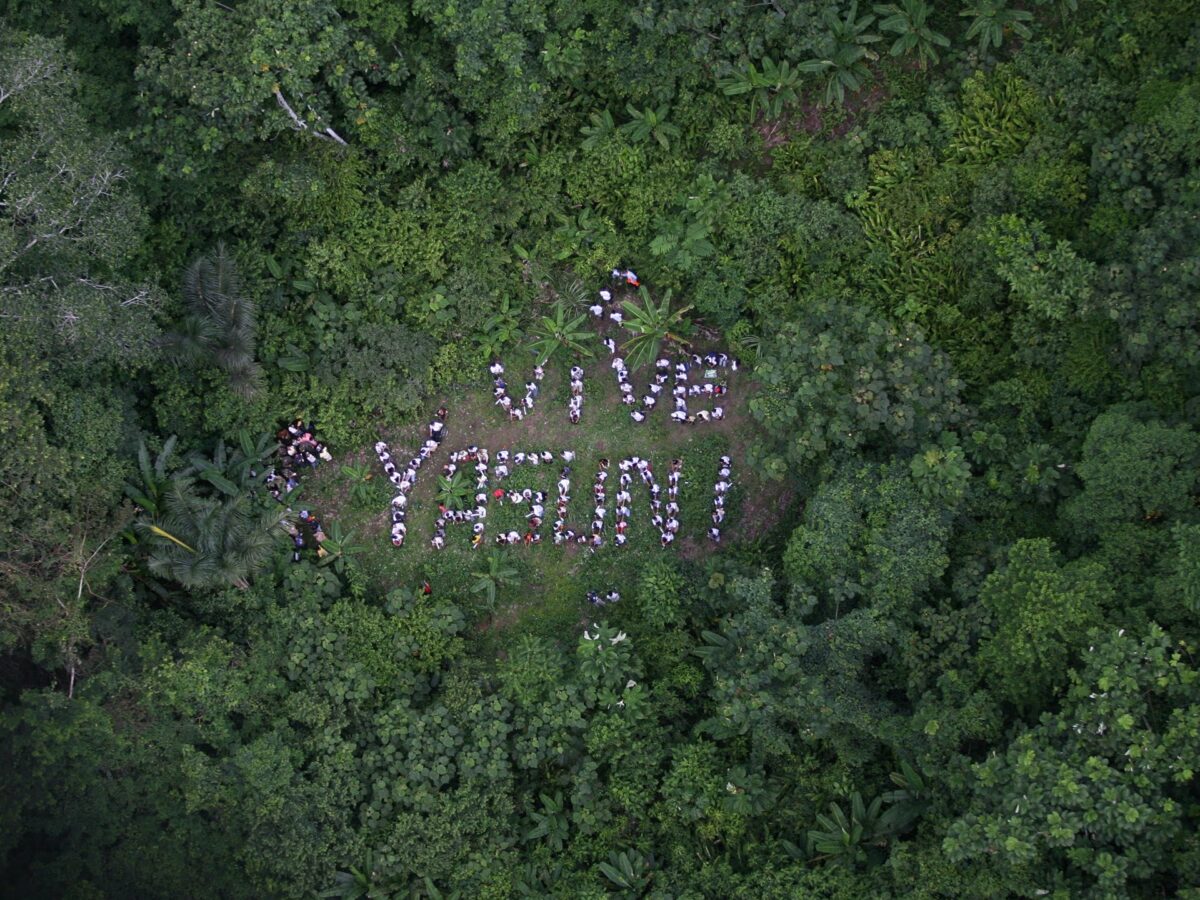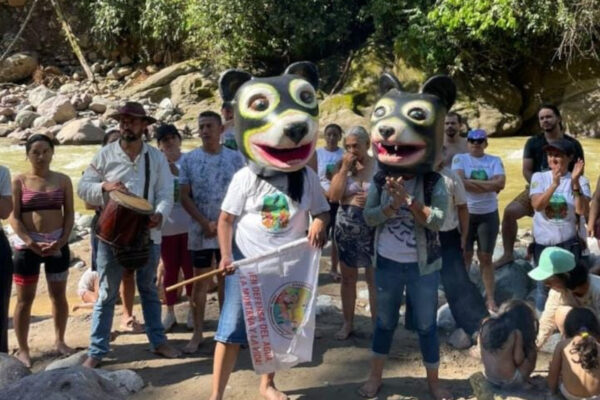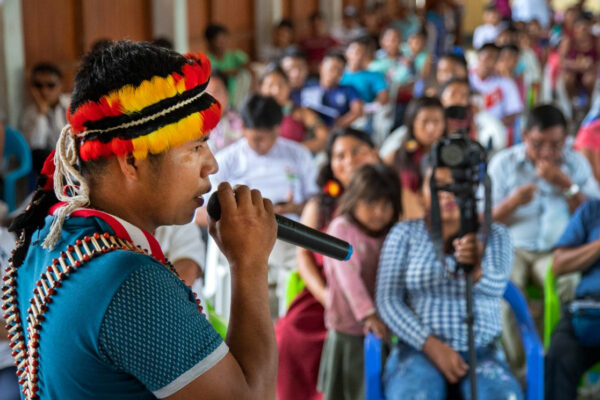Two years ago, Ecuador surprised the world with a historic referendum: more than 58% of the population voted to keep nearly one billion barrels of crude oil underground in Yasuní National Park – one of the most biodiverse places on Earth and home to Indigenous Peoples living in voluntary isolation (Tagaeri and Taromenane). The referendum was a triumph of democracy and a global example of how a society can choose to protect life over oil.
Yet, little has changed since then: by August 2024, only one of the 247 wells in Block 43 had been closed. The referendum mandated that oil operations cease within a year, but the government has announced it will take five.
Today, new threats are emerging, and the Ecuadorian people’s decision remains unfulfilled. President Daniel Noboa is pushing forward the largest oil auction in decades: 2.3 million hectares divided into 14 blocks that overlap with the territories of seven Indigenous nations (Sapara, Shiwiar, Waorani, Kichwa, Achuar, Shuar, and Andoa) in the Amazon rainforest. This extractivist shift is not only an ecological contradiction – given that humanity has already crossed seven of the nine planetary boundaries and the Amazon is nearing a tipping point – but also deepens Ecuador’s political and social crisis, which extends from the streets to financial markets in the Global North. It is part of an ambitious plan to boost investment in the hydrocarbon sector, which includes 49 new projects worth $47 billion.
To make this plan viable, the Noboa administration is promoting regressive economic measures and legislation that restricts social protest while weakening both judicial independence and environmental governance. Territorial leaders who oppose oil expansion face an increasingly repressive state apparatus. There is even talk of constitutional changes that would prioritize greater guarantees for investors at the expense of collective rights, such as free, prior, and informed consent, and the rights of nature itself.
Oil expansion in Ecuador is not an isolated phenomenon and cannot be understood without examining international markets. In a recent report, co-authored by Amazon Watch, we exposed how more than 190 oil, gas, and coal companies are expanding their operations across Latin America and the Caribbean, backed by banks and investors from the United States and Europe. Although science has made it clear that opening new oil fields is incompatible with global climate goals, since the adoption of the Paris Agreement more than 930,000 km² have been opened for oil and gas exploration in the region – an area larger than Venezuela.
The dilemma runs deeper: can there be true democracy in societies whose economies remain tied to oil extraction in Indigenous and ecologically rich territories? The Yasuní referendum proved that another path is possible. The challenge now is ensuring that this sovereign decision is not buried under oil decrees, regressive reforms, and investor deals.
What is at stake is not only Ecuador’s Amazon. A just energy transition must begin from the principle of shared but differentiated responsibility. The upcoming COP30 in Brazil will be a decisive test: will governments commit to declaring the Amazon a fossil-free region, or allow it to become a sacrifice zone? We hope they choose intergenerational and interspecies well-being over short-term profit.













